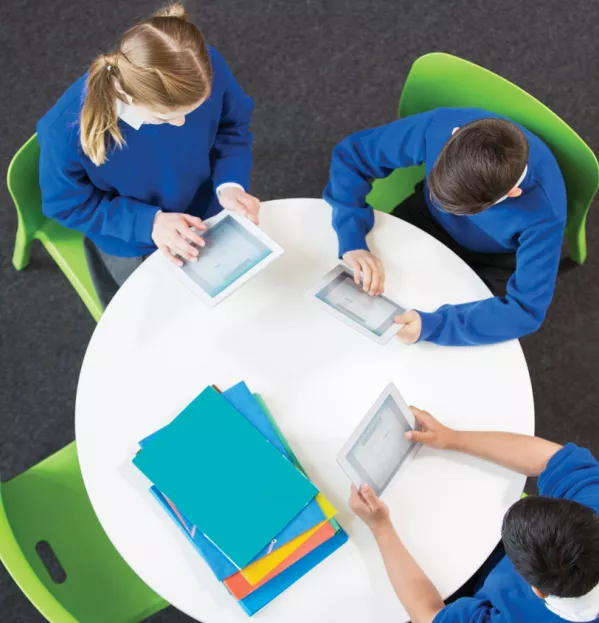Don’t let your students down

I look at the technologically complex world our children are growing up in and I hark back to the age of innocence that was my own childhood, decoding Rubik’s Cubes, playing outside and listening to Wham! Back then, the internet was a sci-fi dream and home computers were for those better off than I.
It can be easy to conclude that technology is a pointless distraction. We managed without it in the past - thrived, even - so why do we need to bother now?
But to imagine that, as schools, we don’t need to keep up is beyond naive, it is dangerous for our children and is doing them a disservice.
Technology is a fantastic way of raising standards: learning can be massively enhanced by technology. Whichever platform you choose in a school (we have opted for iPads), it is an amazing way to engage learners and enables them to express themselves in so many ways. We consider our children’s iPads to be electronic scrap books. Pupils can document so much practical learning through videos and photography, as well as written work. Children can create in the same way as David Hockney, research the life of Nelson Mandela (including watching his speeches) and watch back their performance in a dance routine to improve it - all at the swipe of a screen. How can this be anything but amazing?
Technology is also incredibly inclusive - it levels the playing field for many children who struggle with learning.
Of course, there has to be a balance: our children from Years 1-6 all have their own iPads but they have a set of beautifully presented books that they write in, too, and they all take real reading books home. I would never be in favour of a paperless school. But I would never be in favour of a school without technology, either.
Yet you still encounter teachers who claim that technology has no place in a school, even though they are told all of the above by those of us using it. Not only is that denying the students a valuable learning tool because of a stubborn ignorance, I believe it is also dangerous. Technology is not going to go away just because you don’t use it in school. The vast majority of our children own either a tablet or a phone and have access to the internet. Stranger danger is not about a man in the street any more. Our job is to guide children through this world safely and teach them how to respect themselves and use technology wisely.
The line where our responsibility stops and that of parents begins is a fine one: in my experience, parents can be naive about what their offspring are doing and are unaware of exactly how vulnerable children are online. In the Department for Education’s September guidance, Keeping Children Safe in Education, it is clear that schools have a duty to filter internet content but not to the extent that it de-skills children from learning to manage risk. They also have a duty of care to teach children about difficult subjects, such as sexting. Children do not just instinctively know how to use technology safely - we need to teach them, and this means embracing it ourselves.
Christina Zanelli-Tyler is headteacher at West Cliff Primary School in Whitby
Register with Tes and you can read two free articles every month plus you'll have access to our range of award-winning newsletters.
Keep reading with our special offer!
You’ve reached your limit of free articles this month.
- Unlimited access to all Tes magazine content
- Save your favourite articles and gift them to your colleagues
- Exclusive subscriber-only stories
- Over 200,000 archived articles
- Unlimited access to all Tes magazine content
- Save your favourite articles and gift them to your colleagues
- Exclusive subscriber-only stories
- Over 200,000 archived articles